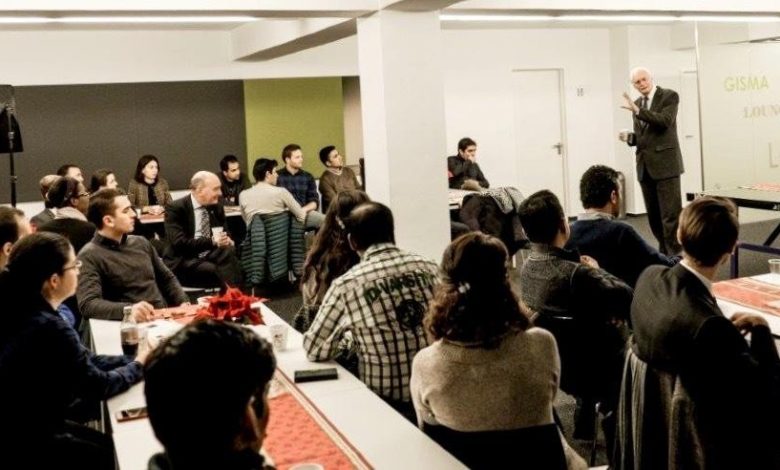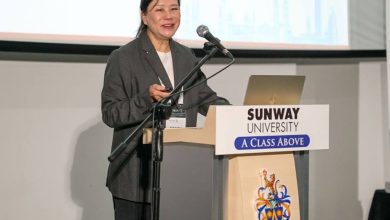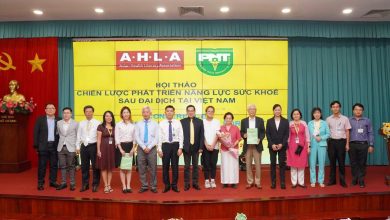Digital Soft Skills – a Hard Lesson for Professors

Digital Social Skills is a new imperative
I used to start a new lecture series by walking to the back of the theatre and bluntly saying: look at those students at the front, they are likely to do well in their careers. The eager and ambitious ones are always sitting at the front benches. It normally did the trick. For the following lectures the back benches remained as empty as possible.
Theatres and lecture rooms, anyone still remember those? Initially we temporarily replaced ‘proper’ teaching with a camera performance on Zoom or Teams. A minor inconvenience it seemed. The teaching went on almost as if nothing had changed. But things had changed. Not just for the time being. For good.
Sure, surveys show more than half of our students are keen to get back to campus, meet up again, have a friendly chat over a coffee, having an animated conversation over lunch or maybe a beer in the evening. Meeting real people again. So yes, all that as soon as possible please, but not at the expense of the convenience of opting for a lecture delivered into one’s own study, bed-sit, a nearby cafe. Students still are happy to travel to the source of knowledge, but equally want that source to come to them, ideally even ‘on tap’ available whenever thirsty or whenever convenient. Why to give that up post-Covid?
The new reality is not that students want this or that, not that they enrol for a campus based programme or for an online programme, they want it all: online, hybrid, blended, conventional campus-based, sometimes this is convenient, the other time that works better. Suddenly the student has the opportunity to take charge of his or her own learning, rather than this being defined and determined by the Professor. The teacher as figure of authority telling students what to do is becoming a figure of history. In the new reality he or she needs to become a guide, a facilitator, coaching students towards knowledge, rather than lining students up in neat lines in theatre benches in order to spell out to them ‘the knowledge’ and afterwards testing their comprehension, with those who did not pay careful enough attention doomed to fail. The rules of learning in the new world are changing rapidly. Students are becoming individuals that need personal guidance rather than being mass consumers of a holy source of knowledge.
We should recognise that it is not easy for a Professor to become a learner. In a technological sense it has been merely an inconvenience: how to get the picture and sound right, how to use the chat function for questions and comments, how to stop referring to books in the library and share links instead. But that was the easy part. In order to be effective, the Professor needs to leave his or her pedestal. The generic knowledge can be delivered much better online by professionals of such content, the same way in the old days a book was better at explaining things, with the Professor often in a more supportive role, explaining and elaborating the materials together with the students. Now the real source of knowledge is readily available online, in well-polished styles, carefully organised learning materials that then can be incorporated into the teaching. The ‘face time’ with students will change or even might get reduced, possibly to short residential periods (blended) or by having simultaneously some students on the campus and others on screen (hybrid). That is indeed quite a learning process for a Professor, and we can only hope that plenty of support will be made available to support that transformation. But even that is not where the biggest challenge lies. This new way of teaching and learning changes fundamentally the interaction of teacher and learner who has a choice to make not just about content but also about being able to personalise and alter sometimes rather capriciously the preferred style of learning of individuals. And above all seeking what I call ‘humanising’ in learning: the student not just being a student but a human being who deserves or even demands individual advice, attention, coaching.
The new teaching will need to engage both the class and the individual. And it requires a sophisticated understanding of what I refer to as digital soft skills. Students have to polish this new skill during their quasi-safe time at college in order to be well prepared for a new world of working. Developing great digital social skills are an imperative for employability. How to work in small groups on challenging assignments digitally, or in groups that take part partly digital, partly on campus. How does intercultural sensitivity work digitally? How do you resolve conflicts digitally? How do you read digital body language? Students have to become comfortable with all this. And their teacher even more so!
So no longer walking towards the back of the theatre, sadly, to get students to understand the basics of impression management. I shall miss that. Now I look at the screen, full of students hiding behind switched off cameras and having to explain to them that those eager and ambitious enough to keep their cameras switched on are the most likely to do well in their careers. And thus, we as teachers adjust and have to adjust rapidly; or stubbornly we refuse to adjust and as a result become marginalised and ultimately extinct. Such is the hard lesson that history has taught us many times over.
Prof Dr Maurits van Rooijen





